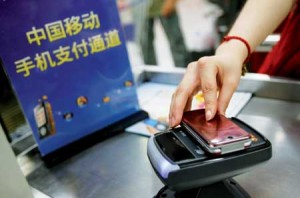PayPal is looking to monetize its Venmo division
PayPal is attempting to successfully monetize Venmo after having acquired the mobile payments firm in 2013, hoping to take advantage of the growing popularity of mobile commerce. Venmo has gained popularity among consumers as it allows them to send and receive payments amongst one another. The service blends the mobile commerce world with social elements, which has given it a competitive edge over other services that have sought to establish a foothold among mobile consumers.
Venmo processed $7.5 billion in mobile payments in 2015
In 2015, Venmo processed some $7.5 billion in mobile transactions, a 213% increase over what it had processed in 2014. This is only a fraction of the $282 billion in payments that PayPal processed last year, but Venmo is seeing aggressive growth. PayPal wants to monetize the service by allowing them to spend money through Venmo rather than only being allowed to transfer money to one another. Over the coming months, this aspect of the service is expected to mature and become well liked among consumers interested in mobile commerce.
PayPal is looking to expand into European markets to support mobile transactions
 Apart from Venmo, PayPal is looking to expand on various fronts in the mobile payments field. At this year’s Mobile World Congress, PayPal announced a new partnership with European telecommunications company Vodafone. Through this partnership, millions of PayPal’s European customers were able to use their Android devices to make purchases using the Vodafone Wallet service. This service is expected to break into several European markets in the coming months.
Apart from Venmo, PayPal is looking to expand on various fronts in the mobile payments field. At this year’s Mobile World Congress, PayPal announced a new partnership with European telecommunications company Vodafone. Through this partnership, millions of PayPal’s European customers were able to use their Android devices to make purchases using the Vodafone Wallet service. This service is expected to break into several European markets in the coming months.
PayPal is establishing a stronger foothold within China
PayPal has also extended its partnership with Alibaba, the largest e-commerce group in China. Together, the two companies have launched a new pilot program, through which retailers can accept PayPal payments. This program is tailored for merchants that want to sell products through Alibaba Wholesale, providing them with a way to effectively connect with mobile shoppers. This may be good news for PayPal, as China is one of the world’s fastest growing mobile commerce markets.
Mobile commerce could eventually replace conventional forms of commerce
Mobile payments may actually do away with cash in the relatively near future. The Institute of Electrical and Electronics Engineers (IEEE) has released a new report that highlights security issues in the mobile commerce space. The report does show that security issues are quite serious, but the mobile commerce space may overcome these issues to outpace traditional forms of commerce and become favored among consumers. IEEE surveyed 2,000 technology enthusiasts for the report.
Consumers remain concerned about security risks that exist in the mobile space
According to the report, 70% of those that the company surveyed believe that mobile payments will be secure enough to replace cash by 2030. Many consumers are already interested in new payment services, but they rarely use these services due to concerns regarding their security. Consumers believe that their personal information could be at risk of exploitation if they use their mobile devices to make purchases. These are not unfounded worries, as mobile payments services have been targeted by malicious groups in the past.
Consumers are worried about unauthorized purchases and malicious QR codes
 Of those surveyed, 46% said they were worried that their payment information would be stolen. Another 33% claimed that they were worried that unauthorized payments would be made through mobile services. Approximately 13% were worried that they would accidentally make a payment through an NFC sticker or QR code. Consumers are also concerned that their mobile devices may be infected by scanning a malicious QR code. These concerns have come together to discourage consumers from participating in mobile commerce.
Of those surveyed, 46% said they were worried that their payment information would be stolen. Another 33% claimed that they were worried that unauthorized payments would be made through mobile services. Approximately 13% were worried that they would accidentally make a payment through an NFC sticker or QR code. Consumers are also concerned that their mobile devices may be infected by scanning a malicious QR code. These concerns have come together to discourage consumers from participating in mobile commerce.
Companies are beginning to aggressively address security issues in order to make mobile commerce safer
While consumers are worried about their financial information, companies in the mobile commerce space are beginning to address these concerns. Several have begun using biometric technology to protect their mobile payments services. Tokenization is also becoming popular in the mobile commerce space. This involves replacing consumer information with digital tokens, which can be used to authenticate mobile transactions.
 Apart from Venmo, PayPal is looking to expand on various fronts in the mobile payments field. At this year’s Mobile World Congress, PayPal announced a new partnership with European telecommunications company Vodafone. Through this partnership, millions of PayPal’s European customers were able to use their Android devices to make purchases using the Vodafone Wallet service. This service is expected to break into several European markets in the coming months.
Apart from Venmo, PayPal is looking to expand on various fronts in the mobile payments field. At this year’s Mobile World Congress, PayPal announced a new partnership with European telecommunications company Vodafone. Through this partnership, millions of PayPal’s European customers were able to use their Android devices to make purchases using the Vodafone Wallet service. This service is expected to break into several European markets in the coming months.
 Of those surveyed, 46% said they were worried that their payment information would be stolen. Another 33% claimed that they were worried that unauthorized payments would be made through mobile services. Approximately 13% were worried that they would accidentally make a payment through an NFC sticker or QR code. Consumers are also concerned that their mobile devices may be infected by scanning a malicious QR code. These concerns have come together to discourage consumers from participating in mobile commerce.
Of those surveyed, 46% said they were worried that their payment information would be stolen. Another 33% claimed that they were worried that unauthorized payments would be made through mobile services. Approximately 13% were worried that they would accidentally make a payment through an NFC sticker or QR code. Consumers are also concerned that their mobile devices may be infected by scanning a malicious QR code. These concerns have come together to discourage consumers from participating in mobile commerce.